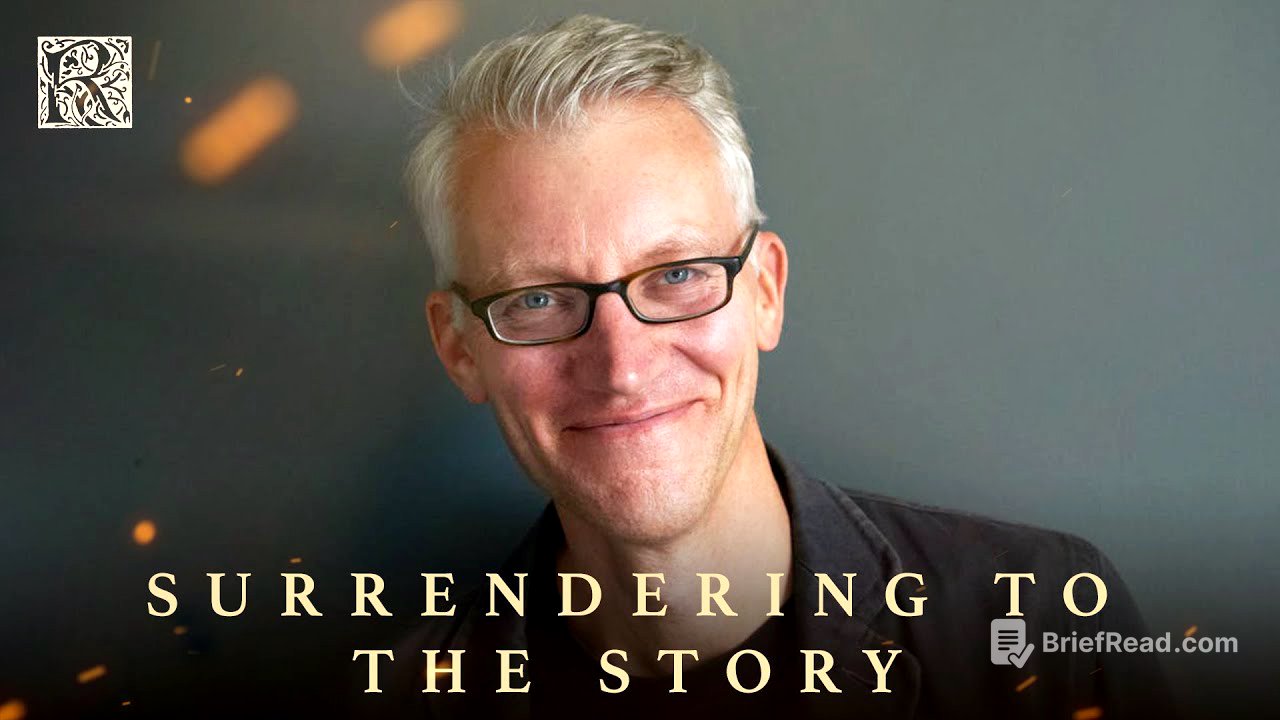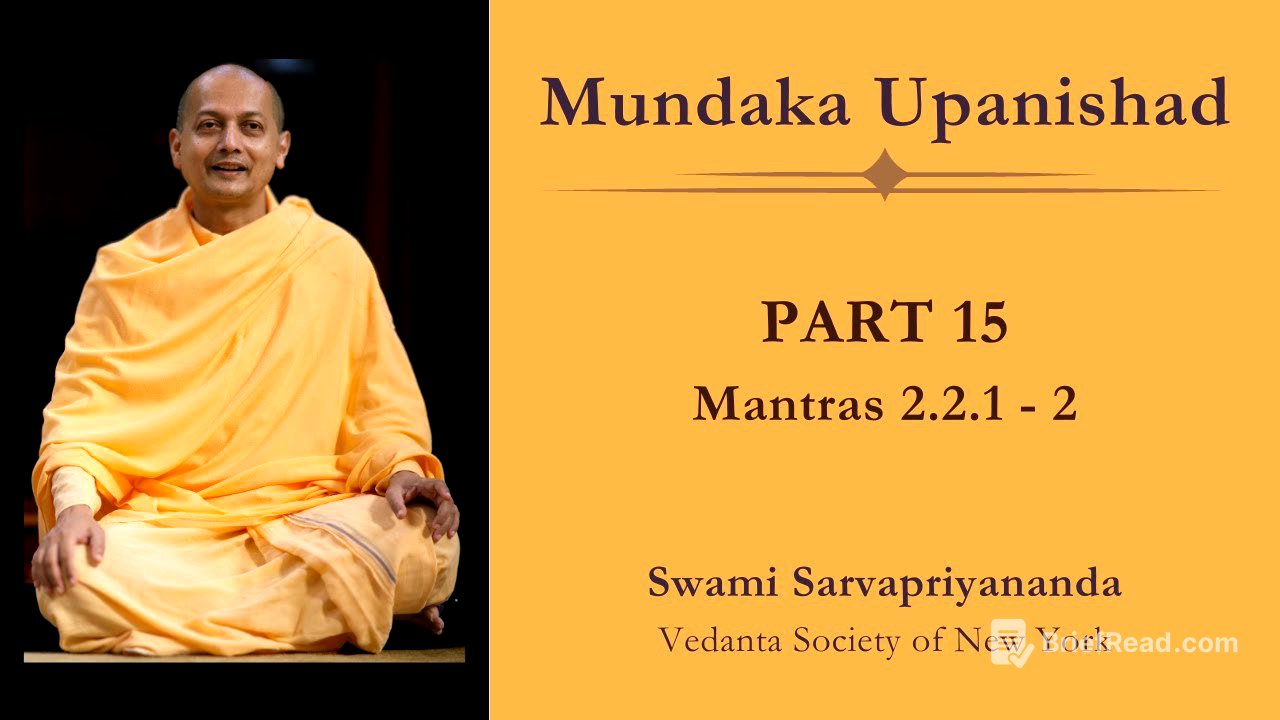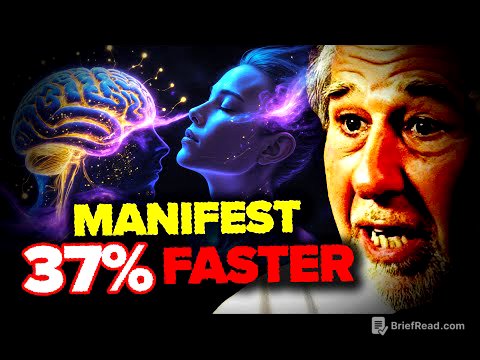TLDR;
This conversation with Tom Holland explores the pervasive influence of Christianity on Western culture, even in secular contexts. Holland argues that many values and assumptions considered universal are actually rooted in Christian history and theology. He discusses how this influence is waning in some parts of the world, while in the West, it manifests in unexpected ways, such as in "woke" movements. The discussion touches on the importance of understanding the Christian origin of these values and the potential consequences of losing that connection.
- Christianity's transformative impact on Western values and assumptions.
- The waning influence of Christianity in geopolitics and its unexpected manifestations in the West.
- The importance of understanding the Christian origin of values like human rights and equality.
- The potential consequences of losing the connection to Christian narratives and doctrines.
Introduction: The Enduring Influence of Christianity [0:31]
The conversation begins with Tom Holland, author of "Dominion," discussing the book's thesis: Christianity has been the most transformative ideology in the history of the West. Its influence saturates Western perspectives on morality, ethics, sexuality, gender relations, social structures, and the concept of progress. Holland explains that many things people take for granted are culturally contingent and deeply rooted in Christian history and theology.
The Enlightenment Myth and Christian Roots [4:45]
Holland shares that the inspiration for "Dominion" came from a Muslim's question about why he doesn't question his own myths. This prompted him to trace his own values back to their origins. He found that the "Enlightenment myth" of a sudden burst of light after a dark age was a restructuring of Christian myths. He argues that values of liberal secular humanism are rooted in Christian history. Criticism of "Dominion" often comes from those who believe in the Enlightenment myth or that their values are imminent and not culturally contingent.
Gibbon, the Enlightenment, and the Protestant Reformation [8:37]
Holland discusses Edward Gibbon's "Decline and Fall of the Roman Empire" and how Gibbon's critique of Christianity is itself an inheritance of Christian values. Gibbon's questioning of the Church and mocking it as a source of superstition is similar to what Protestant reformers did to the Catholic Church. This attitude towards idolatry and superstition can be traced back to Hebrew prophets and their dismissal of idols. Richard Dawkins, often called evangelical, preaches the "good news" of purging superstition with the light of reason, which is a culturally contingent impulse.
The Uniqueness of Christianity and the Spread of Secularism [13:41]
Holland argues that Christianity has a distinctive way of understanding the world, particularly in its conviction that its teachings are properly universal. This desire to propagate a particular way of seeing the world is not found in classical Indian or Chinese cultures. During the imperial heyday of the West, Christianity was planted unapologetically in some regions, while in others, like India and China, European Christians exported their values by assuming that concepts like secularism and human rights could be divorced from their Christian origins. This led to the conversion to secularism, even without conversion to Christianity.
The Waning of the Christian Revolution and the Rise of "Woke" [20:06]
Holland discusses the waning of Christian influence in geopolitics, citing examples like India and Turkey. He then explores whether convulsions in the West are hyper-Christian or a sign of waning influence. Referencing Nietzsche, he questions whether Christian values can exist without Christian belief. He suggests that the West is so Christian that almost everything it does is rooted in Christian assumptions, but the future of these "blooms" without their roots is uncertain. He connects the "woke" movement to the Christian idea of being awakened to the truth and liberated from oppression, tracing it back to Anglo-American Protestantism and cycles of awakenings.
Black Lives Matter, Original Sin, and the Declaration of Independence [24:17]
Holland notes that while the Christian dynamics are evident in Black Lives Matter, the movement has not been overtly Christian and has sometimes been antithetical to Christianity. He discusses the shift away from the doctrine of original sin since the 1960s, leading to a more Pelagian view where people believe they can become perfectly virtuous. He argues that the doctrine of original sin is profoundly democratic because it acknowledges that everyone is at fault. He connects the Declaration of Independence's declaration of human equality to the Book of Genesis, where every human being is created in God's image.
Democracy, Ancient Athens, and Christian Lenses [30:54]
Holland argues that there was no concept of human rights in Greece or Rome. He explains that when we look back at the classical world, we view it through a "smoke screen" of Christian assumptions. Democracy in ancient Athens was not about individual rights but about a complex, emotionally grounded sense that Athenians were bred of the soil and favored by the gods. He says that Christianity has radically dissolved this way of seeing the world, so we can't recognize it when we see it.
Genesis, Time, and the Scientific Method [48:17]
Holland discusses how the Genesis story, despite contradicting modern science, gives us a sense that the world has a beginning and that time flows in a single direction. This structure of time is essential for understanding fossils, sedimentary rock, and the antiquity of rocks. He connects this sense of time to the scientific method and the rights and equality issues discussed earlier.
The Cross, the Yazidis, and the Terror of a World Without Meaning [54:33]
Holland shares a personal experience of visiting a Yazidi town in northern Iraq that had been liberated from ISIS, where people had been crucified. This experience led him to rewrite the opening of "Dominion" to talk about the crucifixion. He says that humanity can't bear too much reality and that in the West, we don't want to think that the torturer might win. He connects this to Black Lives Matter as a communal expression of horror at the idea that the torturer might win.
Faith, Stories, and the Power of Christian Mythology [59:19]
Holland admits that he has lost his faith as a liberal and doesn't believe that human rights objectively exist. However, he says that because he now understands where his beliefs and values came from, he can cling to stories. He believes that the power of Christianity is expressed most potently through its stories, which don't have to be literally true to be true in a moral, poetic, or mythical sense. He has surrendered to the truth of these stories and is happy to identify with them.
The Church's Response to the Pandemic and the Importance of Communion [1:03:41]
Holland expresses disappointment with the Church's response to the pandemic, finding it a pallid echo of public health announcements. He contrasts this with Pope Francis's open-air mass in St. Peter's Square, which he found incredibly profound and comforting. He feels that the churches could provide a sense of communion with people in the past and draw attention to the cultural and scriptural inheritance of what's gone before. He shares his experience of reading "The Canterbury Tales" during the lockdown and being inspired to go on a pilgrimage.









